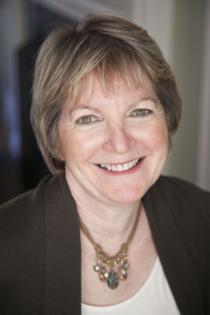COUNTERPOINT: Save the summer break
Published in Op Eds
Who can forget George Gershwin’s memorable song “Summertime and the Living is Easy”? Summers meant picnics in the park, vacations, camping, lounging at the pool, jumping in the lake, and reading favorite books.
That was then, this is now.
Now, we have children attending academically focused summer programs or athletic camps designed to turn kids into elite athletes and everything in between.
Within the U.S. public school system, 15 percent of students participate in summer academic programs. Add to this, a whopping 97% of elite universities offer summer programs for high school and middle school students.
So began the dismantling of summer as we knew it. By sending kids to space camp, robotics camp and the like, we hope we are setting them up for the most successful life imaginable.
But are we?
What is the cost of having too much structure, leaving less opportunity for downtime and family fun time? We may want to right the ship when, for example, COVID-19 left significant damage to children’s education. It is commonly understood that we now have a growing math crisis. We also know there is a decline in teen interest in STEM. Left unfixed, these deficiencies may have profound implications for technological innovation and the economy.
Changing the pace and tenor of historically relaxing summers comes at a cost.
In 2025, when we feel the pressure to be the most efficient and productive individuals possible, we are in deep need of a break. A majority of adults (66%) in the workforce feel burned out and overworked. College students report higher burnout (80%), which they attribute to insufficient sleep, fear of failure, and an uncertain path ahead. Not to be left out, teens are affected, too (81%), feeling stress about their appearance, social life, fitting in, fear of missing out, and navigating relationships.
This toxic brew of anxieties and fatigue within families needs attention. Allowing unstructured time over the summer may be part of the remedy. The freedom to unwind and connect with loved ones, enjoy hobbies, and relax might be just what the doctor ordered. And not just for kids but for adults too, who similarly need to rejuvenate their tired minds and bodies. After all, a majority of adults (55%) are often on their computers at night when they are supposedly off duty.
In my family, every summer we went to the shores of Lake Michigan, swam to the buoy marking deep water, and then high-fived it. Competitive doubles tennis games were often followed. We would return to the grandparents’ home, where we would struggle through a crossword puzzle together. We had many traditions that marked our family and refilled our tank before heading back to school in the fall.
It is helpful to remember that summer vacation was initially designed to help suit the agrarian calendar, where the farmer’s children were needed for the harvest. As industrialization began, the need for summer labor was no longer. Since then, new needs have emerged.
Now, we feel the need to focus on personal health and maintaining quality relationships that anchor us in turbulent waters. Many studies have documented the prevalence of anxiety and depression in society today. Unstructured time, especially within the confines of summer, is the chance to say it’s about health-up, not catch-up. Let’s use this time to shore up our core.
Classic wisdom is that it takes two weeks to decompress from an overpacked, overstressed life fully. This makes the recent trend for families taking longer vacations good indeed. Surveys show that families most often vacation in July, with 35% of those surveyed planning to be gone for 10-21 days. Spending time as a family in an unscripted, relaxed way is the surest sign of a real vacation.
The benefit of returning to summer as leisure time is that we stand a better chance of feeling rejuvenated. This allows us to be better at almost everything — from rediscovering our creativity to having more patience for those around us, to believing in our ability to solve challenging problems.
With this mindset, hanging out with loved ones, preferably near a body of water or a nearby mountain, we might find that it really is summertime and the living is easy.
_____
ABOUT THE WRITER
Jill Ebstein is the editor of the “At My Pace” series of books and the founder of Sized Right Marketing, a consulting firm. She wrote this for InsideSources.com.
_____
©2025 Tribune Content Agency, LLC

























































Comments